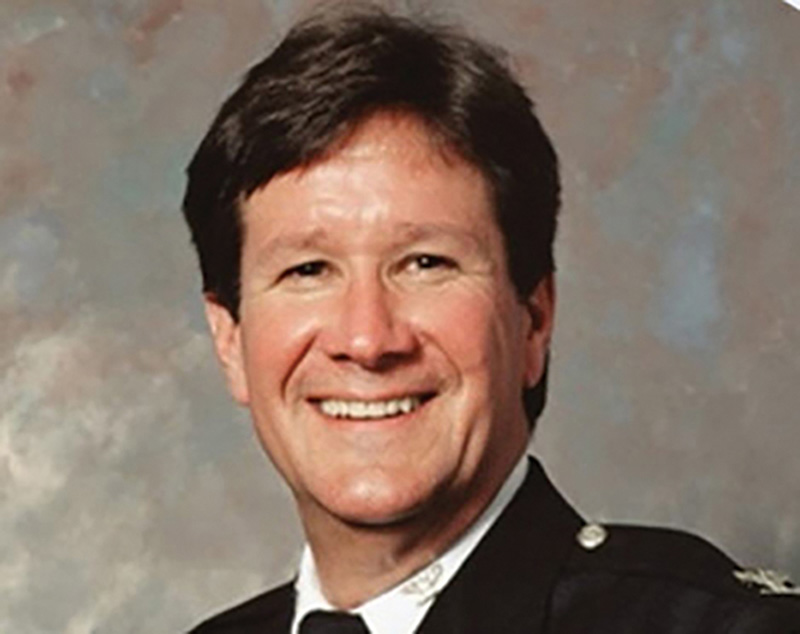By John Hammer
Tuesday, Sept. 19, the Greensboro City Council met in closed session to discuss the lawsuit former Police Chief David Wray filed against the city for legal fees he incurred in defending himself in other lawsuits.
Greensboro has a policy dating back to 1980 to pay the legal fees for employees who are sued for actions taken while employees, even if they were at fault. Wray and the city were sued by a number of police officers for racial discrimination. The city has refused to pay Wray’s legal fees because the city claimed he was acting outside the scope of his employment. The city, however, paid the legal fees of other city employees named in the same lawsuits.
Wray recently won a North Carolina Supreme Court decision, which sent the case back to Superior Court for trial. The city had argued that it had government immunity and could not be sued. Wray argued that he had an employment contract with the city, which gave him the right to sue.
The Supreme Court agreed with Wray, which means the City of Greensboro spent over $500,000 to appeal the case to the North Carolina Supreme Court only to lose and now essentially has to start over.
City Councilmember Tony Wilkins said he requested the closed session because he wanted to see where the city stood, now that it had lost the appeal.
Wilkins said that in closed session, when the city’s outside attorneys said they were disappointed they lost at the state Supreme Court, he replied, “You didn’t just lose; you got your butts kicked. The decision was 5-2.”
Wilkins said in closed session he said to the attorneys, “I have asked continuously for any evidence of wrongdoing or that Wray acted outside the scope of his office and you have provided me nothing. If you can’t provide me evidence against David Wray how are you going to provide evidence to the jury? I’ve asked for everything and got nothing.”
Wilkins said that he added that he had gone through Wray’s personnel file, “and I found nothing except evidence of an exemplary career. The city cannot provide me with one document from any city manager stating that Wray acted outside the scope of his employment.”
Wilkins said that one councilmember, who he won’t name because they were in closed session, said that they had heard a tape recording of Wray where he “lied and lied.” Wilkins said he asked City Attorney Tom Carruthers if he could hear that recording and Carruthers said that he knew of no tapes where Wray lied.
According to Wilkins, another councilmember said that they wouldn’t vote to settle with Wray because of the discrimination in the “black book.”
Wilkins said he replied, “We have a former city manager testifying under oath that the line up book, or what you called the black book, was not discriminatory.”
Wilkins said the councilmember questioned him but that Carruthers agreed that there was such testimony.
Wilkins said that he asked the attorneys a question that they didn’t answer. He said he asked, “If you have such a good case against Wray, why did we spend $500,000 going to the Supreme Court with this immunity issue? Why not just go to trial and win the case?”
Wilkins said, “If I’m fortunate enough to be reelected, I plan to continue to try and finalize the David Wray matter by paying his legal fees and having the city issue a formal apology.”
Wilkins said that before the closed session he had agreed not to make a motion about the Wray case, but he wanted to know what the city’s position was in this upcoming lawsuit.
He said that before the City Council made a decision on whether to go forward with the lawsuit, he thought the City Council should meet in closed session and have the attorneys go over the case they plan to present in court. He said that the city has spent hours going over old minutes of closed sessions looking for some written documentation of why Wray’s legal fees weren’t paid and haven’t found anything, and he said before the city signs on to spend hundreds of thousands more dollars on this case, the City Council should know how they plan to present a case with no evidence.
Wray is suing for $220,000 in legal fees and the city has already spent over $500,000 in an attempt not to pay those fees. Estimates of the total cost of the case if the trial should go to court range as high as $1 million.
The city was hit with a flurry of lawsuits after Wray was locked out of his office in January 2006 and then resigned. The city has settled most of those lawsuits, some with the reasoning that it was less expensive to settle them than go to court.
In this case the city could have already saved over a quarter of a million dollars by settling the case, and the clock is ticking on just how much it will cost the city.
Of course, if Wilkins is correct and the city has virtually no evidence about why the decision was made not to pay Wray, and the city loses the court case, then the city will have to pay the legal fees after spending somewhere between $500,000 and $1 million to get out of it.

